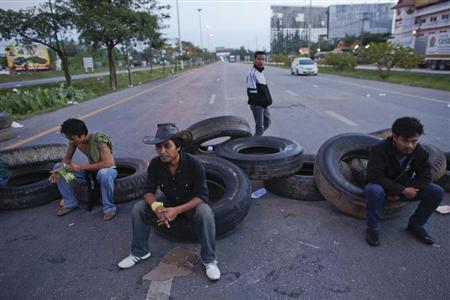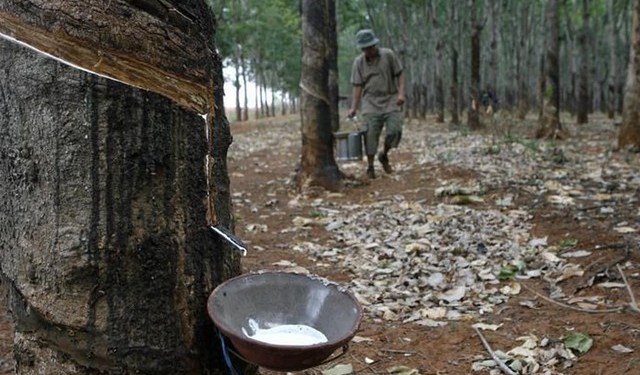Reuters – Thailand’s cabinet will discuss a proposal on Tuesday to double the subsidy paid to rubber farmers to compensate for low prices, the agriculture minister said, but that may not be enough to placate some farmers who plan further protests this weekend.
Farmers will get 2,520 baht ($78.35) per rai, a measure of land equal to 0.16 hectare, Agriculture Minister Yukol Limlaemthong told Reuters, up to a maximum of 25 rai. The scheme would run until May 2014 and cost 21.29 billion baht ($662 million).
The subsidy is double what was offered to farmers last week. It should give farmers about 10 baht per kg of rubber produced which, on top of the market price of 81 baht for raw rubber, would give farmers the 90 baht per kg some have been demanding.
Some groups, however, want at least 95 baht per kg.

The populist government of Prime Minister Yingluck Shinawatra has come under pressure to resolve the dispute after violent clashes last week between police and protesters who hurled rocks and bottles filled with an acidic liquid.
Yukol said the government would avoid direct intervention because that would distort the market and would be too costly, on top of the 600 billion baht already spent on rice subsidies.
Thailand is the world’s biggest rubber producer and exporter but in the recent past its intervention has done little to influence world prices, determined more by demand from China and global tire makers.
Yukol said the doubled compensation would not have any impact on exports as the money would be given to farmers directly to help offset production costs.
“We’ll try to help them cut costs and allow them to get a bigger profit margin and they could get around 90 baht per kg eventually although they will still sell rubber at market prices,” Yukol said.
The unsmoked rubber sheet price has picked up from around 75 baht in late 2012, helped recently by the possibility of government intervention, but it remains far below the 180 baht touched in February 2011, when benchmark smoked rubber sheet (RSS3) hit a record $6.40 per kg.
($1 = 32.1650 Thai baht)
(Reporting by Apornrath Phoonphongphiphat; Editing by Alan Raybould and Michael Urquhart)
Source: Reuters



























